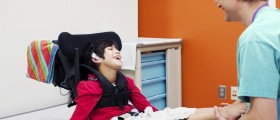
Introduction
Epilepsy is a serious neurological condition. Mostly expressed through seizures as well as a long-lasting presence, this illness is certainly an obstruction to one's normal functioning. Rather, one can never be sure if he or she will be free from seizures and how long will this freedom last. Suffering from this condition means being deprived of many things in one's social existence. Namely, people suffering from epilepsy often cannot take the driver's license exam and encounter numerous problems when it comes to finding jobs. All the troubles mentioned above are even worse if the condition itself was misdiagnosed, which is a very common case.
Main Characteristic of Epilepsy
Epilepsy is not a single condition but rather a group of many other smaller conditions involving malfunctioning of the nervous system. Being such, it is not hard to understand why doctors often mislead themselves when it comes to correct diagnosis, since some of the symptoms usually connected with epilepsy do not necessarily need to be the ones needed to diagnose it. That way, one may only have a symptom rather than a disease but gets labeled as an epileptic.
Other Possible Indicators of Wrong Diagnosis
First of all, medical history of a patient is crucial when it comes to any given disease he or she may have, especially epilepsy. Unfortunately, this fact is often neglected, and doctors, quite often, regardless of the risks, rule out any other possible reasons behind a person's seizures and “jump to conclusions” by calling the condition epilepsy, thus labeling the patient wrongly probably for the rest of his or her life.
Secondly, not all seizures can or should be related to epilepsy since they have nothing to do with it. Namely, chronic migraines often tend to get classified as epilepsy symptoms, but they are rather connected to low-level of blood circulation in one's head. These situations where there is a diminished level of blood or blood circulation in one's brain or head can often lead to seizures and should never be connected with epilepsy. Also, some cardiac disorders, sleeping disorders and conditions, narcolepsy and even the restless leg syndrome can get misdiagnosed.
Finally, epilepsy medication will not work on a person not suffering from it. Thus, improper medication suggests improper diagnosis. If the drugs fail to end seizures many other conditions need to be taken into consideration and the epilepsy itself should be ruled out. Wrong diagnosis should not present an obstacle or a mistake to be hidden and ignored, but should lead to correction and re-evaluation which leads to saving one's life and enabling him or her a seizure-free existence.

















Your thoughts on this
Loading...